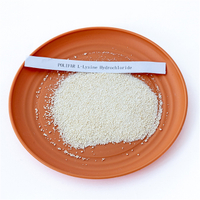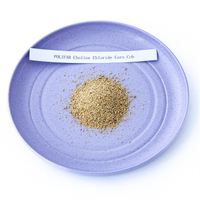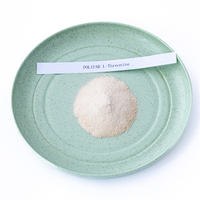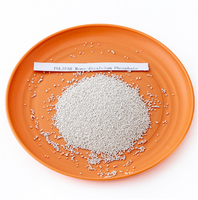Views: 0 Author: Site Editor Publish Time: 2024-07-06 Origin: Site








With the increasing awareness of the health risks associated with excessive sugar consumption, many people are seeking healthier alternatives. Natural sweeteners have emerged as a popular choice, offering a range of benefits while providing the sweetness we crave. In this blog, we'll explore what natural sweeteners are, their common sources, popular types, applications, benefits, potential drawbacks, and how they compare to artificial sweeteners. We'll also answer some common questions about these sweeteners.

Natural sweeteners are sweet-tasting substances derived from natural sources, such as plants, fruits, and vegetables. Unlike artificial sweeteners, which are synthetically produced, natural sweeteners are minimally processed and often provide additional health benefits.
Natural sweeteners come from a variety of sources. Some of the most common include:
· Plants: Stevia is derived from the leaves of the Stevia rebaudiana plant.
· Fruits: Monk fruit extract is obtained from the luo han guo fruit.
· Sugar Alcohols: Erythritol, xylitol, sorbitol, and maltitol are found in fruits and vegetables or produced through the fermentation of plant sugars.
Here are some of the most popular natural sweeteners, each with unique characteristics and uses:
· Source: Fermented from glucose found in fruits and vegetables.
· Sweetness: About 60-70% as sweet as sugar.
· Benefits: Low in calories, does not raise blood sugar levels, and is gentle on the digestive system.
· Source: Extracted from birch trees or corn cobs.
· Sweetness: Roughly equivalent to sugar.
· Benefits: Helps prevent tooth decay and has a low glycemic index.
· Source: Naturally found in fruits like apples and pears.
· Sweetness: About 60% as sweet as sugar.
· Benefits: Low in calories, commonly used in sugar-free candies and gums.

· Source: Derived from the sugar maltose found in corn syrup.
· Sweetness: 75-90% as sweet as sugar.
· Benefits: Lower in calories than sugar, often used in low-calorie and diabetic-friendly foods.
· Source: Extracted from the leaves of the Stevia rebaudiana plant.
· Sweetness: 200-300 times sweeter than sugar.
· Benefits: Zero calories, does not affect blood sugar levels, and is heat-stable.
· Source: Found in small quantities in wheat, figs, and raisins.
· Sweetness: 70% as sweet as sugar.
· Benefits: Very low in calories, does not raise blood sugar levels, and has a taste similar to sugar.
· Source: Extracted from the luo han guo fruit.
· Sweetness: 150-200 times sweeter than sugar.
· Benefits: Zero calories, does not affect blood sugar levels, and is heat-stable.
Natural sweeteners can be used in a variety of food and beverage applications, including:
· Baked goods: Cookies, cakes, and pastries.
· Beverages: Coffee, tea, smoothies, and soft drinks.
· Confections: Candy, chocolate, and gum.
· Dairy products: Yogurt, ice cream, and flavored milk.
· Condiments: Sauces, dressings, and spreads.
Natural sweeteners offer several benefits over traditional sugar and artificial sweeteners:
· Lower calorie content: Helps with weight management.
· Low glycemic index: Suitable for people with diabetes or those monitoring blood sugar levels.
· Dental health: Less likely to cause tooth decay.
· Natural origins: Often perceived as healthier and safer.
While natural sweeteners have many benefits, they also have some potential drawbacks:
· Digestive issues: Some sugar alcohols (like sorbitol and maltitol) can cause bloating and diarrhea in large amounts.
· Allergic reactions: Some individuals may be sensitive or allergic to certain natural sweeteners.
· Cost: Natural sweeteners can be more expensive than regular sugar.
Natural sweeteners are derived from natural sources and are minimally processed, whereas artificial sweeteners are chemically synthesized. Natural sweeteners are often perceived as healthier due to their natural origins and additional health benefits. In contrast, artificial sweeteners can sometimes cause adverse health effects and are subject to more scrutiny and regulation.
Q: Are natural sweeteners safe for everyone?
A: Generally, natural sweeteners are safe for most people. However, individuals with certain medical conditions or allergies should consult with their healthcare provider before using them.
Q: Can natural sweeteners help with weight loss?
A: Yes, due to their lower calorie content, natural sweeteners can help reduce overall calorie intake and support weight loss efforts.
Q: Are natural sweeteners suitable for baking?
A: Many natural sweeteners, like stevia and erythritol, are heat-stable and suitable for baking. However, adjustments in recipes may be necessary to achieve the desired texture and sweetness.
Natural sweeteners are a healthier alternative to sugar, offering a variety of benefits, such as low calorie content, a low glycemic index, and dental health advantages. From erythritol to monk fruit sweeteners, consumers have a wide variety of options to find a natural sweetener that suits their taste and dietary needs. While they do have some potential drawbacks, overall their benefits make them a valuable addition to a healthy diet. Whether you’re looking to reduce your sugar intake, manage your weight, or control your blood sugar levels, natural sweeteners are worth considering. For high-quality natural sweeteners, consider sourcing from a reputable supplier like Polifar, where we offer a range of products to suit your needs.






